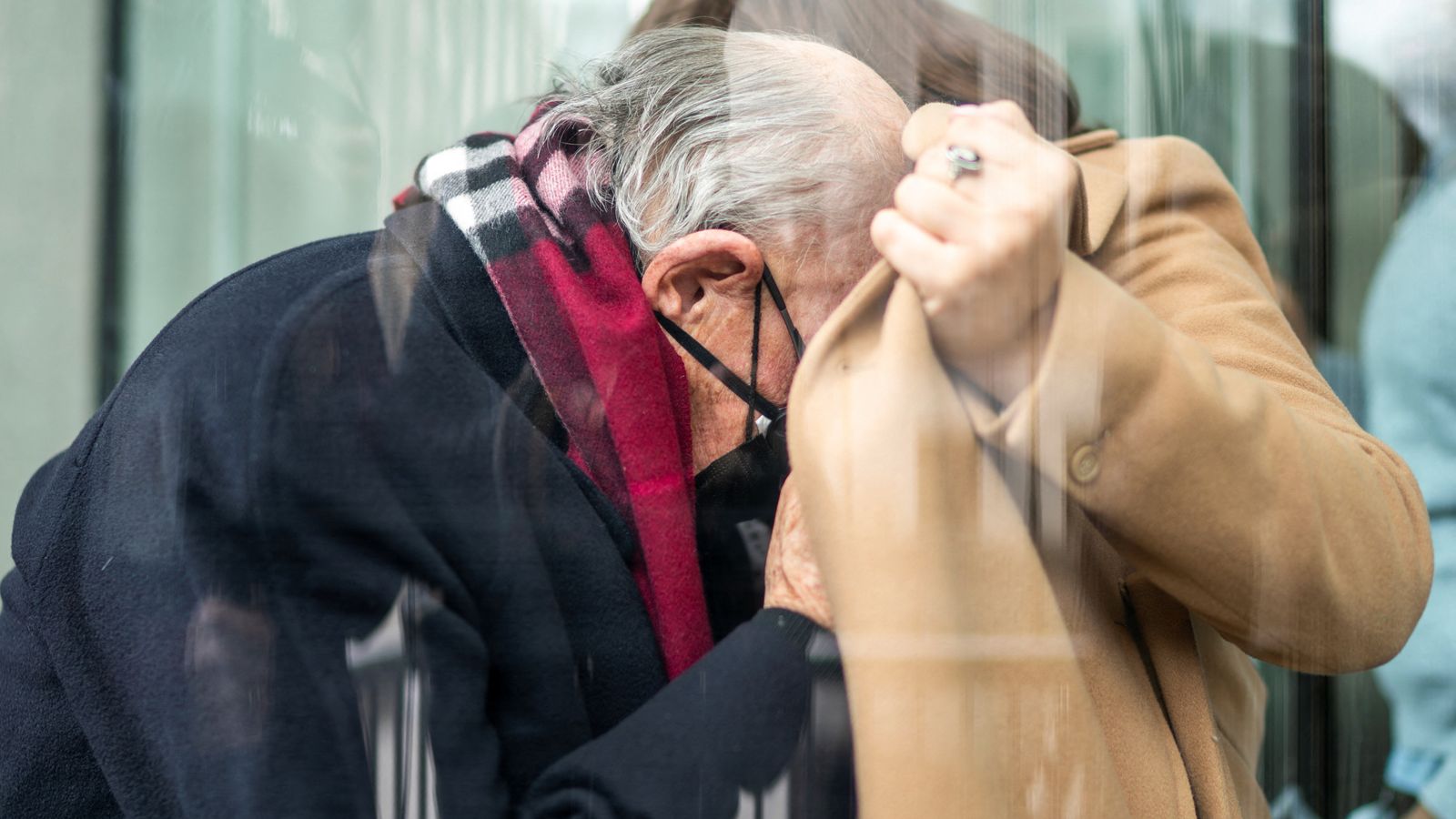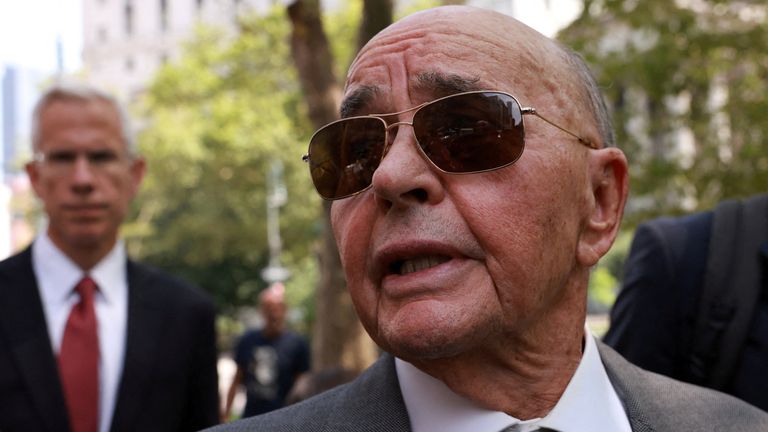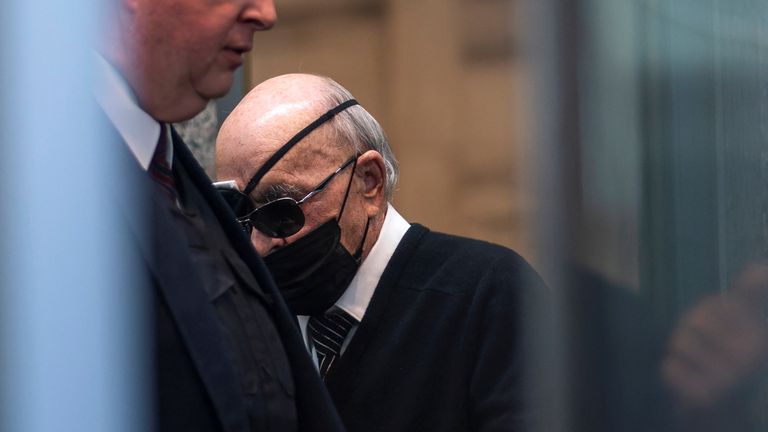Joe Lewis: British billionaire and former Spurs owner avoids jail over insider trading scheme


British billionaire Joe Lewis has avoided a jail sentence after admitting he orchestrated an insider trading scheme that helped those around him make millions.
The former Tottenham Hotspur owner, who lives in the Bahamas, tipped off his girlfriend, friends, and two of his private pilots with inside information on four publicly-traded companies, which they used to get rich, prosecutors in New York said.
In January, he pleaded guilty to one count of conspiracy to commit securities fraud and two counts of securities fraud, admitting in court he had known he was breaking the law.
But prosecutors had said he deserved leniency because of his age, bad health and willingness to come to the US to face the charges, rather than force a protracted extradition battle.
In court on Thursday, the 87-year-old was sentenced to three years’ probation and fined $5m (£4m).
Before he was sentenced, Lewis spoke briefly, saying: “Your honour, I’m here today because I made a terrible mistake.
“I’m ashamed.”
Lewis said he hoped “to make amends and to rebuild the trust that I have squandered” in the remainder of his life.

Read more:
From humble beginnings in London’s East End to billionaire insider trader
Premier League clubs dominate football’s top money makers
Advertisement
Lewis founded Bahamas-registered investment firm Tavistock Group and is one of the 500 richest people in the world, according to the US government.
His fortune is estimated at $6.2bn (£4.9bn), including homes in several countries, a $250m yacht, private planes worth $90m and a $100m art collection.
Lewis held a majority stake in Premier League football club Spurs for more than two decades, a shareholding now owned by a trust on behalf of his family.
From the beginning, it was clear Lewis would not be any ordinary defendant – after his initial arrest, he was released on $300m (£237m) bail after putting up his yacht and plane as collateral.

Keep up with all the latest news from the UK and around the world by following Sky News
Prosecutors said he learned about public companies after making large investments and on at least four occasions between 2019 and 2021, he tipped off those close to him.
“This insider trading was not the result of aberrant, one-time conduct but rather a troubling pattern of misconduct over the course of several years,” they said.
His motive was unclear but prosecutors said it was possibly down to “hubris, ego, a desire to make a financial gift without parting with his own money, an irrational form of greed, or some other reason”.